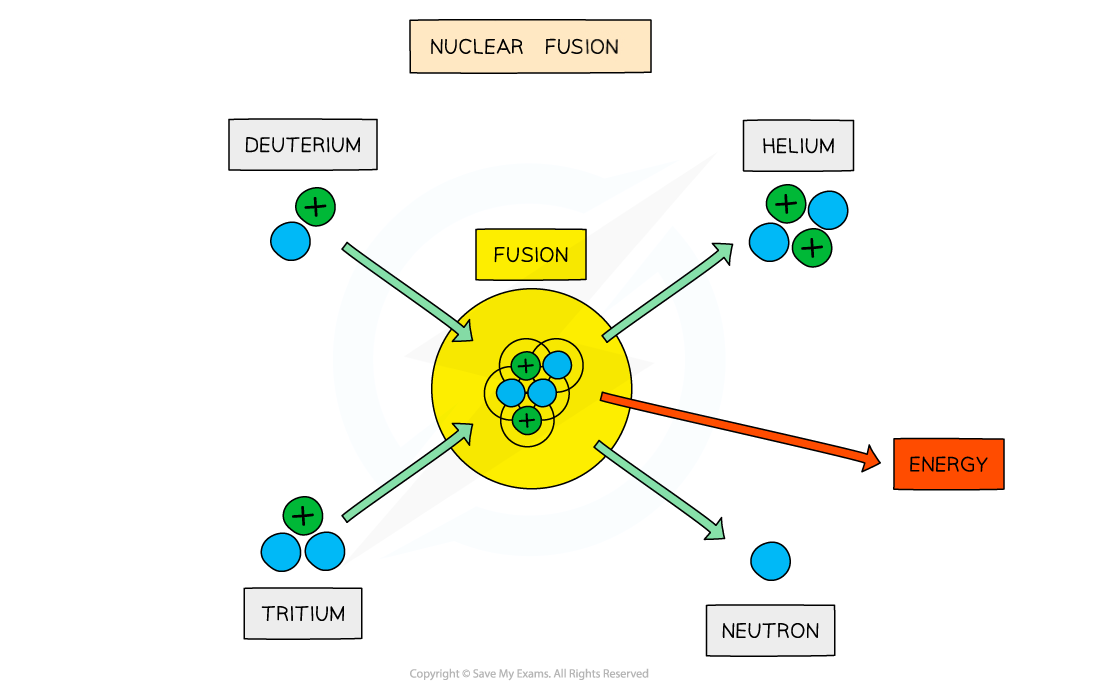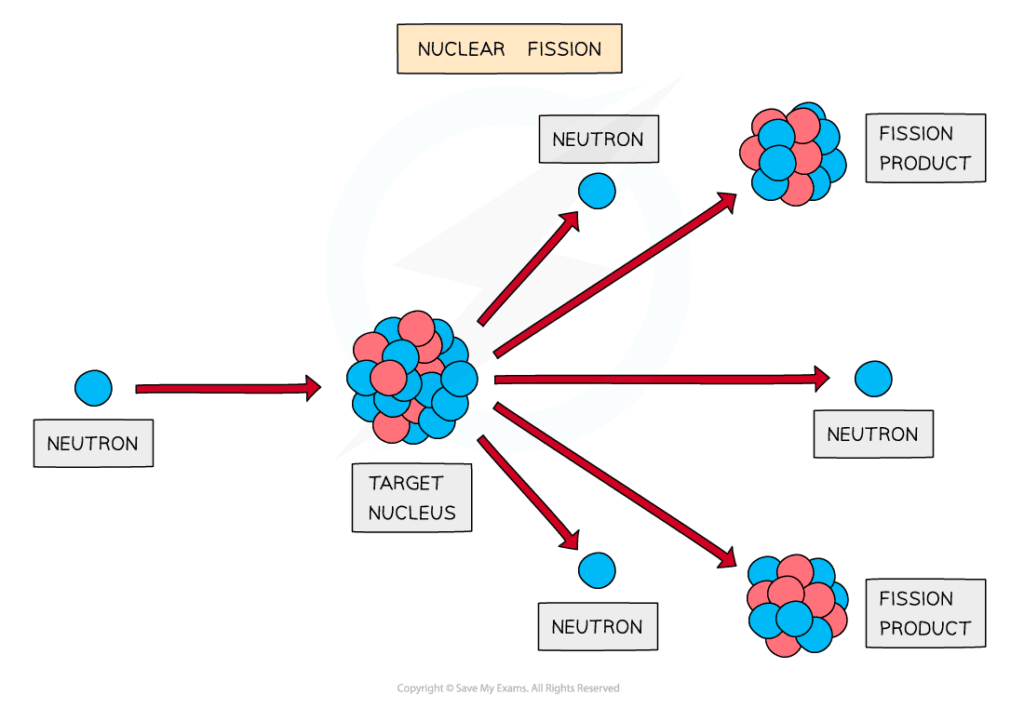Nuclear Energy (Edexcel IGCSE Physics (Modular)): Revision Note
Exam code: 4XPH1
Nuclear energy
The nucleus of an atom contains a huge amount of nuclear energy
When harnessed safely, nuclear energy can significantly reduce our dependency on fossil fuels
However, it also has the potential to be highly destructive (nuclear weapons, for example)
Sources of nuclear energy include:
Nuclear fusion
Nuclear fission
Radioactive decay
Nuclear fusion
Nuclear fusion is when:
Two small nuclei join together to produce a larger nucleus
Nuclear fusion does not happen on Earth naturally, but it does in stars
However, fusion has been achieved on Earth, and fusion reactors are currently in development
When deuterium and tritium nuclei (isotopes of hydrogen) fuse, they form a helium nucleus with the release of energy
The amount of energy released during nuclear fusion is huge:
The energy from 1 kg of hydrogen that undergoes fusion is equivalent to the energy from burning about 10 million kilograms of coal

The fusion of deuterium and tritium to form helium with the release of energy
Nuclear fission
Nuclear fission is when:
One large nucleus splits into two smaller nuclei
The large nucleus that splits is often referred to as the parent nucleus
The smaller nuclei that are produced are referred to as the daughter nuclei
This is the process used to generate electricity in nuclear power stations

The fission of a nucleus, such as uranium, to produce smaller daughter nuclei with the release of energy

Unlock more, it's free!
Did this page help you?